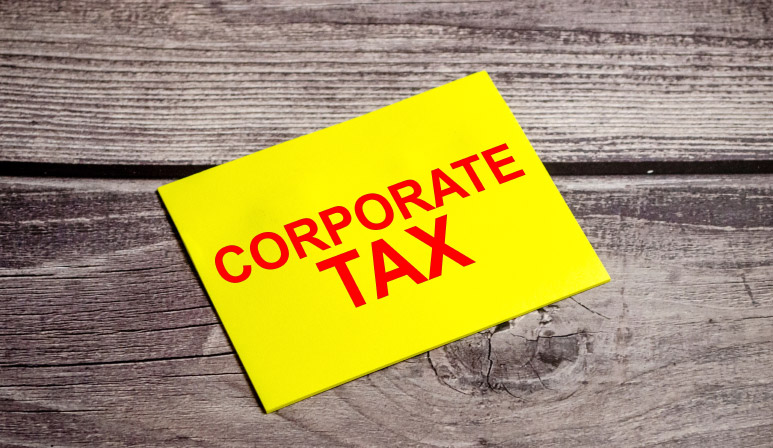- Notifications

We will only notify the newest and revelant news to you.
The United Arab Emirates (UAE) has long been hailed as one of the world’s most attractive destinations for business. But as global tax standards evolve and economic reforms reshape the Middle East, understanding taxation in the UAE has become critical for businesses operating or planning to operate within its borders.
It doesn't matter if you're a big company, a regional business, or a startup in Dubai; you need to understand the UAE's tax system to stay on the right side of the law, keep costs down, and grow your business for the long haul.
This guide will go over all the important stuff about taxes in the UAE. We'll talk about corporate tax, sales tax (VAT), and why hiring a tax consultant in Dubai might be a smart move this year.
Historically, the UAE has been known for its low-tax or even tax-free business environment. But recent years have seen significant changes, driven by:
Taxation in the UAE has gotten pretty complicated nowadays, unlike some bygone era when things were relatively straightforward. Businesses now confront a convoluted tax structure melding federal corporate tax, value-added tax and compliance mandates in line with global norms.

Evolution of Taxation in the United Arab Emirates
Let’s dive into the main pillars of the UAE tax system as they stand in 2025.
A historic milestone arrived in June 2023 when the UAE introduced federal corporate income tax, transforming the landscape for businesses.
While 9% remains competitive by global standards, it fundamentally changes how businesses approach taxation in the UAE.
Many companies operate in Free Zones, hoping to benefit from tax exemptions. However, under the new regime:
If a Free Zone company transacts with the UAE mainland outside permitted activities, that income is taxed at 9%.
When businesses talk about sales tax in the UAE, they mean VAT (Value Added Tax), implemented in January 2018.
Businesses whose taxable turnover exceeds AED 375,000 annually must register for VAT. Even those below this threshold may voluntarily register to claim input VAT credits.
VAT compliance is now an essential part of taxation in the UAE for any active business.
One of the attractive features of taxation in the UAE is that there’s no withholding tax on:

UAE tax system as it stands in 2025
Dubai, as the UAE’s business epicenter, is where many companies feel the impact of the new corporate tax regime most strongly.
Many businesses have turned to a corporate tax consultant in Dubai to navigate these new complexities and optimize their tax position.

Considerations for Corporate Tax in Dubai
In addition to corporate tax, businesses must comply with Economic Substance Regulations introduced in response to global anti-avoidance measures.
Failing ESR compliance can result in fines ranging from AED 20,000 to AED 400,000, and potential administrative penalties such as license suspension.
=> All about Information: Offshore Company Formation in Dubai, RAK, UAE
Another crucial aspect of taxation in the UAE is the extensive network of Double Taxation Avoidance Agreements (DTAs).
As of 2025, the UAE has over 140 DTAs with partners like:
Businesses engaging in cross-border activities should analyze these treaties carefully, often with the help of a corporate tax consultant in Dubai, to optimize tax structures.

Double Taxation Agreements of the UAE
Compliance is now a central pillar of doing business in the UAE. Under the new tax regime, businesses must:
Failing to comply can result in significant penalties another reason many firms now rely on a corporate tax consultant in Dubai to handle their filings.
The introduction of corporate tax has significantly increased demand for specialized tax expertise.
For businesses navigating corporate tax Dubai rules and the broader taxation in the UAE system, working with a qualified corporate tax consultant in Dubai is rapidly becoming standard practice.

Corporate Tax Consultant in Dubai
As the UAE modernizes its tax administration, businesses should prepare for:
Tax authorities invest heavily in cutting-edge technology and sophisticated data analytics for identifying instances of non-compliance quickly nowadays. Companies proactively managing tax affairs are better positioned nowadays to avoid costly disputes entirely with revenue authorities and other stakeholders.
The taxation in the UAE has undergone significant changes recently. While the UAE remains an attractive destination for businesses, companies now face a more complex tax environment that requires careful attention.
As the UAE implements its new tax policies, businesses must adopt a proactive approach to tax compliance and strategy. To navigate these changes effectively, it's advisable to engage a qualified tax advisor. This can offer strategic clarity, ensuring that businesses remain fully compliant with the latest legal requirements while optimizing their tax positions. Offshore Company Services can assist in providing expert advice and solutions tailored to your company's needs, helping you adapt to the evolving tax landscape in the UAE.
Latest news & insights from around the world brought to you by One IBC's experts
We are always proud of being an experienced Financial and Corporate Services provider in the international market. We provide the best and most competitive value to you as valued customers to transform your goals into a solution with a clear action plan. Our Solution, Your Success.